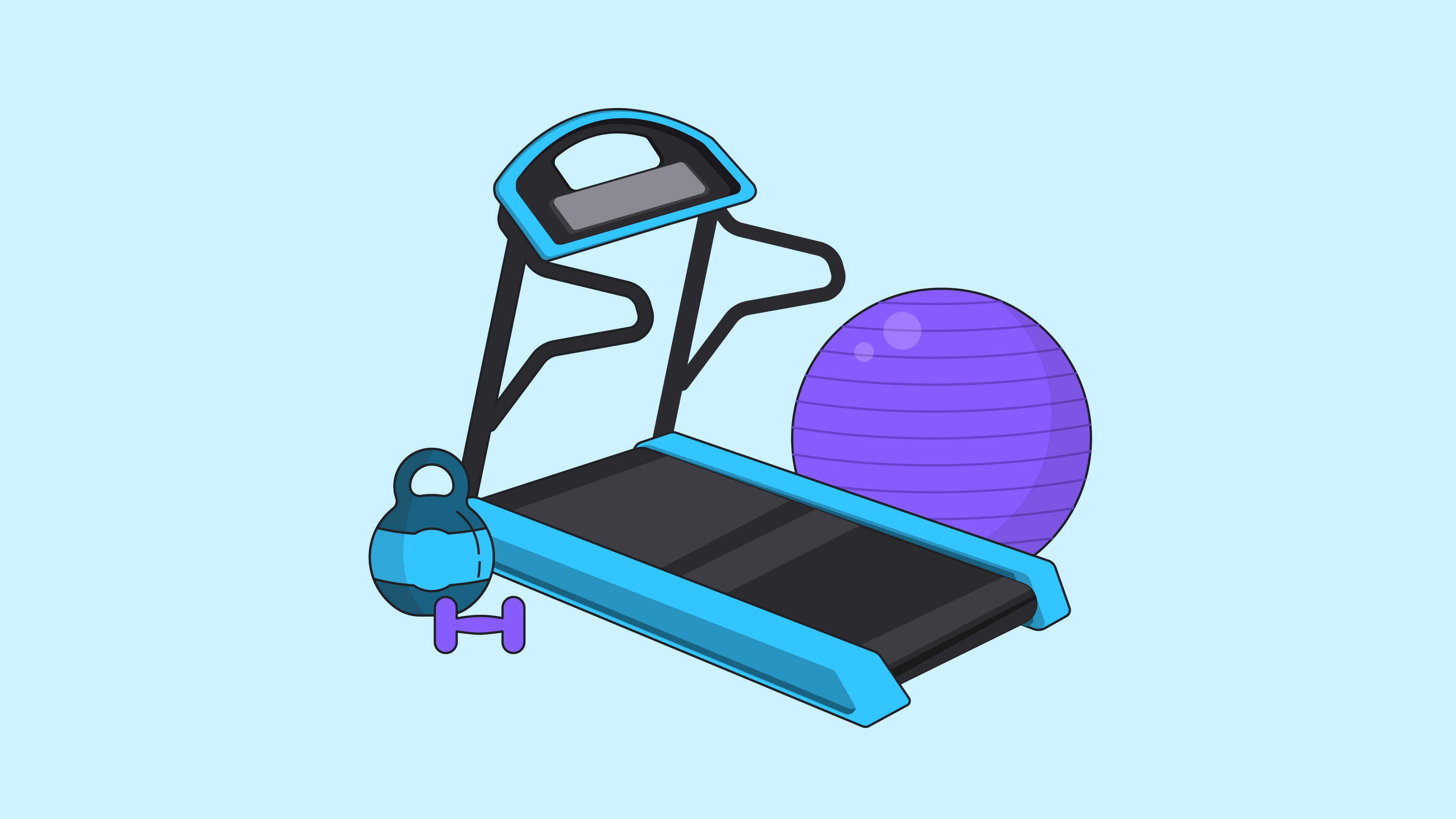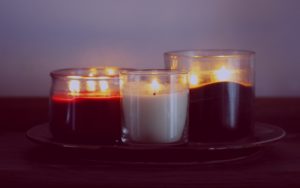
15 Ways to Get Better Sleep, According to Science
Alicia Roth, PhD, DBSM
Alicia Roth, PhD, DBSM is a Clinical Health Psychologist & Staff at the Cleveland Clinic, where she specializes in Behavioral Sleep Medicine. She completed her doctoral training at the University of Florida, Internship at the Baltimore VA, and Behavioral Sleep Medicine Fellowship at The Cleveland Clinic. Her work focuses on treating a range of sleep disorders, […]
- Establishing a consistent bedtime routine and sleep schedule, emphasizing the importance of a regular wake time, is crucial in reinforcing the body’s natural sleep-wake cycle and improving overall sleep quality.
- Understanding the influence of light on the circadian rhythm and incorporating light therapy techniques, such as exposure to natural light in the morning and reducing exposure to blue light at night, can significantly aid in regulating sleep patterns and promoting better sleep.
- Adopting a holistic approach to sleep, including maintaining a strategic approach to caffeine consumption, incorporating bedtime teas and relaxation techniques, creating a conducive sleep environment, and prioritizing physical exercise, can contribute to improved sleep quality and overall well-being.
If you always feel tired in your day-to-day and struggle to get sound sleep, you’re not alone. As many as 68% of Americans report experiencing trouble falling asleep or staying asleep at least once a week.
When you’re getting enough sleep and feeling your best, you probably don’t think twice about your nightly routine. It’s not until you’re struggling to catch some Zzz’s that you begin to reevaluate your bedtime habits. Fortunately, there are things you can do to improve your night’s sleep and feel more rested in your waking hours.
In this article, we’ll cover 15 science-backed sleep tips to get better rest night after night.
1. Establish a Bedtime Routine & Stick With It
Going to bed and waking up at the same time every single day, even on weekends, is the best way to reinforce your body’s natural sleep-wake cycle.
“We typically hear that keeping a consistent bedtime is very important for improving sleep. But keeping a consistent wake time is more impactful in regulating your sleep-wake cycle,” says Dr. Alicia Roth, a Clinical Psychologist.
Struggling to fall asleep at the same time every night? Research shows developing a sleep schedule can lead to more restorative rest. Most of us use an alarm clock in the morning, so we aren’t late to start our day. But have you considered setting the alarm in the evening to signal when it’s time for bed? By doing this, you create a consistent, sleep-promoting routine.
Developing a regular bedtime routine readies your mind and body for rest and sets the tone that it’s time to put other distractions aside and hit the hay.
2. Use Light-Therapy to Strengthen Your Circadian Rhythm
 Your circadian rhythm, otherwise known as your sleep-wake cycle, is directly controlled by sunlight. Your sleep-wake cycle influences your brain processes and hormone production, making or breaking your quality of rest. At night, your brain senses a lack of sunlight, triggering the production of melatonin, a sleep-inducing hormone. In the mornings when the sun rises, it tells your brain it’s time to wake up; sunlight hinders melatonin production and keeps your body energized.
Your circadian rhythm, otherwise known as your sleep-wake cycle, is directly controlled by sunlight. Your sleep-wake cycle influences your brain processes and hormone production, making or breaking your quality of rest. At night, your brain senses a lack of sunlight, triggering the production of melatonin, a sleep-inducing hormone. In the mornings when the sun rises, it tells your brain it’s time to wake up; sunlight hinders melatonin production and keeps your body energized.
If you’re having trouble falling asleep and waking up on time naturally, light therapy can do the trick. In the mornings, you can nurture your circadian rhythm by getting sunlight right after you get out of bed; this can include going outside for a quick stroll or merely enjoying breakfast in a sunny spot. At night, keeping lights low and eliminating blue-light from your bedroom can prove powerful in helping you fall asleep faster. Sunlight alarms are becoming more and more popular as they simulate sunrise and sunset on a small scale. These strengthen your sleep-wake cycle and allow you to start your day a more peaceful way.
In more severe cases, a lightbox is required for light therapy. In these instances, it’s suggested individuals sit in front of a bright light for 30 to 40 minutes after waking up in the mornings to keep their internal clock in sync with night and day.
3. Be Mindful When Planning Mid-Day Naps
Naps can be a great pick-me-up during the day, but napping too late in the afternoon can pose a threat to the quality of your night’s rest. Sleep specialists agree the most opportune time to squeeze in some mid-day shut-eye is around 5 or 6 hours after you wake up. However, that’s not always possible on a day-to-day basis.
To play it safe, always plan your naps at least 5 hours before bedtime. Taking a nap anytime in the 5 hours leading up to your bedtime can make it harder to fall, or stay, asleep.
4. Be Strategic in Your Caffeine Consumption
 Like naps, caffeine can disrupt your ability to doze off to sleep. Many people rely on caffeine as a boost throughout their day; but, it’s crucial to time your coffee or energy drink consumption strategically so you can reap the benefits of caffeine during the day without making it harder to doze off at night. As a good rule of thumb, it’s best to cut caffeine consumption at least 7 hours before bed as to not affect your night’s sleep.
Like naps, caffeine can disrupt your ability to doze off to sleep. Many people rely on caffeine as a boost throughout their day; but, it’s crucial to time your coffee or energy drink consumption strategically so you can reap the benefits of caffeine during the day without making it harder to doze off at night. As a good rule of thumb, it’s best to cut caffeine consumption at least 7 hours before bed as to not affect your night’s sleep.
If you find it hard to cut out caffeine in the afternoons entirely, choose herbal and unsweetened teas over sugary alternatives. Unsweetened green tea can provide approximately half of the caffeine of a cup of coffee and offer a variety of health benefits without making you feel wired or jittery.
5. Try Bedtime Teas
If you struggle to fall asleep or snooze soundly, incorporate a cup of bedtime tea into your nightly routine. Teas have been used as natural sleep aids for centuries and can be the difference between poor sleep and a good night’s rest.
Chamomile, valerian root, lavender, lemon balm, and passionflower teas can all promote calmness and induce deep sleep. In most stores, you can find teas marketed as “sleepytime” or “bedtime,” these usually contain a combination of the options we listed above with other relaxing herbs.
6. Skip Large Meals 3 Hours Before Bed
 Eating a big, heavy meal right before bed is one of the quickest ways to give yourself an upset stomach and disrupt your sleep. Ideally, you should be eating your last meal of the day at least 3 hours before bed and not eating again until breakfast. However, if you do need a midnight snack, keep it light and stick to sleep-inducing foods such as bananas, almonds, or yogurt.
Eating a big, heavy meal right before bed is one of the quickest ways to give yourself an upset stomach and disrupt your sleep. Ideally, you should be eating your last meal of the day at least 3 hours before bed and not eating again until breakfast. However, if you do need a midnight snack, keep it light and stick to sleep-inducing foods such as bananas, almonds, or yogurt.
7. Eat the Best Foods for Sleep
If you struggle to get good rest at night, you should incorporate the best foods for sleep into your dinner. Some foods have specific sleep-promoting properties, while others make your stomach feel heavy and unsettled. For example, eating turkey makes you feel drowsier than eating red meat would. Skip the cheeseburgers and fried foods around dinnertime and instead eat foods such as salmon, tuna, cod, turkey, whole grains, cottage cheese, kale, hummus, jasmine rice, sweet potatoes, and chickpeas.
8. Exercise Daily
 Squeezing in 30 minutes of exercise every day can play a major role in your quality of sleep and ultimately, overall health. Studies have found a morning run in the sun can not only lower your blood pressure but also induce longer sleep cycles. If you’re not one for an early morning workout, doing pilates or stretches in the evening hours can activate your parasympathetic nervous system and relax your body for sleep.
Squeezing in 30 minutes of exercise every day can play a major role in your quality of sleep and ultimately, overall health. Studies have found a morning run in the sun can not only lower your blood pressure but also induce longer sleep cycles. If you’re not one for an early morning workout, doing pilates or stretches in the evening hours can activate your parasympathetic nervous system and relax your body for sleep.
Though a lack of energy may make you feel too tired to get to the gym, regular exercise can significantly improve your sleep in the long-run.
“Even though poor sleep means you are less likely to want to exercise or be physically active the next day, reducing your exercise/activity as a reaction to poor sleep can make your sleep worse,” says Dr. Alicia Roth of the Cleveland Clinic. “It’s important to exercise or get some physical activity in even if you’re struggling with low energy.”
“Low energy during the day and exercise can be a catch-22,” adds Dr. Roth. “If you exercise, you’ll get an energy boost. But it’s hard to exercise when you’re low energy!”
9. Keep Your Bedroom Conducive for Sleep
You wouldn’t walk into a brightly lit room, or a room full of distractions, to take a nap— would you? That said, you should think of your bedroom as a cave— cool, dark, and conducive for sleep. Your bedroom should be reserved exclusively for sleeping. If you like to watch TV or read before you drift off, do so in another room, such as the living room, before winding down and heading to bed to sleep.
If you keep laundry or homework scattered about your bed or in your bedroom, it can divert your mind back to the day’s responsibilities come bedtime. Additionally, if you keep your computer or TV turned on while you’re trying to doze off to bed, it can prevent you from falling asleep promptly. A good rule of thumb is to leave all work materials and electronics outside of the bedroom.
“Another way to think about it is you want to train your body and mind to think, BED = SLEEP, and as soon as we get into bed, we sleep. That’s the only thing we do in that space,” advises Dr. Roth.
10. Find Your Most Comfortable Temperature for Sleep
 Feeling too hot or too cold can cause you to wake up time and time again during the night, so it’s important to find your most comfortable temperature for catching some shut-eye. Sleep specialists agree the optimal temperature for sleeping is anywhere between 60 and 67 degrees, whereas anything above 75 or below 54 can disturb your slumber.
Feeling too hot or too cold can cause you to wake up time and time again during the night, so it’s important to find your most comfortable temperature for catching some shut-eye. Sleep specialists agree the optimal temperature for sleeping is anywhere between 60 and 67 degrees, whereas anything above 75 or below 54 can disturb your slumber.
If you prefer a warmer bedroom to get good rest, you should keep your thermostat higher or throw an extra blanket on the bed to prevent you from getting cold. On the other hand, if you’re more likely to overheat, keep the thermostat low, fan on, unplug your electronics, and use breathable bedding.
11. Upgrade Your Sleep Set
This may seem like a no brainer, but if your mattress isn’t comfortable, it could negatively influence your night’s sleep. Choosing the most comfortable mattress for your needs is arguably the most critical factor in getting a good night’s rest. If your bed isn’t compatible with your sleeping position or is causing aches and pains, it likely doesn’t matter what else you do to improve your sleep, as that’ll always cause you discomfort.
If you’re suspecting you may need to upgrade your mattress, the first thing we recommend is investing some time into searching for the best mattress that can promote healthy sleep.
You can save on mattresses and all sorts of sleep accessories by shopping the year’s big mattress sales:
- Best MLK Day Mattress Sales
- Best Presidents Day Mattress Sales
- Best Sleep Awareness Week Mattress Sales
- Best Memorial Day Mattress Sales
- Best 4th of July Mattress Sales
- Best Labor Day Mattress Sales
- Best Columbus Day Mattress Sales
- Best Black Friday Mattress Sales
- Best Cyber Monday Mattress Sales
12. Practice Relaxation Techniques
 If you’re feeling stressed out, it may be necessary to add some relaxation techniques into your bedtime routine. Muscle or breathing exercises can not only help you fall asleep initially but also fall back asleep should you wake up in the middle of the night. According to the National Sleep Foundation, some of the best relaxation practices include deep breathing and guided imagery exercises.
If you’re feeling stressed out, it may be necessary to add some relaxation techniques into your bedtime routine. Muscle or breathing exercises can not only help you fall asleep initially but also fall back asleep should you wake up in the middle of the night. According to the National Sleep Foundation, some of the best relaxation practices include deep breathing and guided imagery exercises.
Even if you’re a newbie to relaxation techniques, deep breathing and guided imagery exercises are simple. Imagery involves visualizing peaceful scenes to unwind your body and mind. Picturing waves, the beach, a sunset, or whatever you find most calming, and blocking out other distractions keeps you in a positive mind space conducive for relaxation and rest.
Deep, self-aware, and mindful breathing is an easy way to lower your stress levels and make you feel calmer. 4-7-8 breathing involves inhaling for four seconds, holding your breath for seven seconds, and exhaling for eight seconds. Doing this several times before sleep can help you doze off faster. (And there are plenty of apps nowadays to help with guided relaxation!)
13. Bathe Before Bed
Taking a hot bath or shower before bed is a great way to kickstart the falling asleep process. As you’re drifting off, your body temperature naturally drops a few degrees to prompt melatonin production. The heat of the water while bathing or showering helps speed up this process.
While you’re bathing, you’re submerged in hot water which raises your body temperature. After you get out of the shower, though, the water evaporates from your skin and your temperature drops. The drop in temperature from stepping outside of the shower facilitates the decline in body temperature that prompts melatonin production and helps you fall asleep.
14. Keep Technology Outside of the Bedroom
 As we’ve mentioned, TVs, phones, or any technology that emits blue light can block melatonin production and serve as a distraction from sleep. If you like to watch TV in the evenings or browse your phone or tablet, do so outside of the bedroom.
As we’ve mentioned, TVs, phones, or any technology that emits blue light can block melatonin production and serve as a distraction from sleep. If you like to watch TV in the evenings or browse your phone or tablet, do so outside of the bedroom.
When you climb into bed, it should be a signal to your brain that it’s time to rest. Laying in bed and scrolling through your smartphone or binge-watching TV can shift your brain’s association and weaken the trigger that bedtime equals sleep time. Plus, staring at blue-light can keep you awake even if you’re not realizing it.
If you have trouble falling asleep in a completely dark, silent bedroom, try using a white noise machine. These provide peaceful sounds to make your bedroom more conducive for sleep.
15. Don’t Stress About Sleep
If you’re laying in bed unable to fall asleep, do not stress out about your situation. Whether it’s been 30 minutes or an hour of tossing and turning, if you can’t fall asleep, the best thing to do is get out of bed and take your mind off of trying to force yourself to drift off. Worrying too much about getting enough rest can only disturb your sleep further. Instead, moving to the living room and choosing to read a book on the couch can distract you from your struggles.
Staying calm, practicing your breathing and imagery exercises, and distracting yourself from the issue keeps your mind in a relaxed state and contributes to your efforts to fall asleep naturally. Just whatever you do, don’t resort to turning on the TV or grabbing your phone, as that will only contribute to your wakefulness and make your problems worse.
“There is no one habit or behavior change that will improve your sleep. Sleeping well depends on many factors; therefore, improving sleep is usually multifactorial as well,” says Dr. Roth.
Side Effects of Sleep Deprivation
It’s not uncommon to hear the phrase “I’m so tired” or “I didn’t get enough sleep last night” on a regular day. We hear these phrases so often that we begin to think nothing of them; however, sleep deprivation is nothing to overlook. Your body and brain need sleep to function, and habitually getting less than 7 hours of sleep can lead to physical and mental health issues later on down the line.
In addition to feeling tired and grumpy, there are serious short-term and long-term risks that come with accruing a large sleep debt.
In the short term, a lack of sleep can cause:
- Fatigue: It goes without being said that not getting enough sleep can cause you to feel tired. Making a habit of skipping out on necessary sleep can cause recurring daytime fatigue, affecting your mood and making it harder to live your happiest life.
- Mood swings: When you don’t get enough sleep, your mood can be easily impacted, resulting in mood swings.
- Irritablility: Sleepiness can make us more impatient and unhappy.
- Depression: Lack of sleep puts you at higher risk of experiencing depressed moods.
- Forgetfulness: When you sleep, pathways form between the neurons in your brain, helping you retain new information. When you have trouble sleeping, it can cause you to become more and more forgetful.
- Grogginess: When your brain is deprived of sleep, your reaction times and judgment are impaired. This puts you at more risk of accidents— from car accidents to tripping and falling. Every year, there are over 6,000 fatal car crashes as a result of drowsy driving.
- Laziness: Being tired and groggy can kill your motivation, whether it be to pursue certain hobbies or meet necessary deadlines. Feeling foggy doesn’t necessarily put you in the mood to get up and get going.
- Clumsiness: When your reaction times are impaired, you’re more prone to clumsiness.
- Difficulty concentrating: It’s challenging to learn new concepts when your brain can’t properly absorb and store new information.
- Hunger: Sleep problems impact your brain’s ability to produce hormones as it should. When you’re tired, you produce higher levels of ghrelin, a hunger hormone, and less leptin, an appetite-control hormone. As a result, you’re more likely to experience cravings for sweet, salty, and starchy foods. Indulging those cravings puts you at a higher risk of weight gain and obesity.
Long-term consequences of sleep deprivation include:
- Weakened immune system: Sleep deprivation affects your ability to fight off the flu, colds, and other illnesses— increasing your risk of frequently feeling under the weather.
- Increased risk of heart disease: The “Whitehall II Study” conducted in 2007 looked at how a lack of sleep can impact your mortality. During this study, researchers had 10,000 participants cut their sleep back by only two hours every night. The results showed participants had increased their risk of death from all causes, but specifically, doubled their risk of death from heart disease.
- Premature aging: When you’re sleep-deprived, your body produces increased amounts of cortisol, a stress hormone, and fewer amounts of human growth hormone, which keeps your skin looking youthful. Additionally, cortisol breaks down collagen, which leaves your skin looking dull and aged.
- Obesity: It’s not uncommon for sleep-deprived individuals to gain weight and become obese after months, or sometimes years, of inadequate sleep due to the overproduction of hunger hormones and sugar cravings.
- Hypertension: As we mentioned prior, sleep deprivation leads to the over production of cortisol, a stress hormone. As time passes, your body’s inability to regulate the excess stress hormones can lead to hypertension, otherwise known as high blood pressure. Hypertension puts you at an increased risk of heart disease, stroke, and death.
- Diabetes: Your blood sugar levels are directly correlated to your quality and quantity of sleep. When you’re not getting an adequate amount of sleep, your blood sugar levels rise and stay elevated, which can lead to diabetic issues.
Are You Ready to Get Better Sleep?
In the short-term and long-term, sleep deprivation takes away from your quality of life and makes it harder for you to live happier and healthier. In recent years, it seems many people are pushing rest to the back burner to make time for other things they view as more important. However, making adequate time for necessary Zzz’s and practicing the best tips to improve your night’s sleep is crucial to feeling good and performing your best in all aspects of life.
We hope this guide has been helpful in your efforts towards quality sleep. However, it’s necessary to note that our suggestions are not a substitute for and should not be taken as professional medical advice. If you’re concerned about your lack of rest or feel you may have a sleep disorder, you should consult with your doctor.
